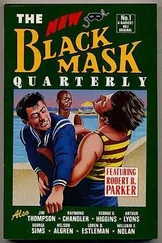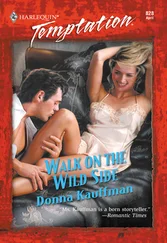Actually she had found him out in everything so thoroughly she had no need of following him around. When she needed money she picked his pocket, that was all there was to it. If the pocket was bare she went to his bookshelf and leafed through a few volumes until a bill or two floated out. The old man had no way of banking without betraying his whereabouts.
Season of heat when skins dry fast below the copper blaze of noon or flashflood spring when pipes back up and colored clothespins clamp the skins in rainbowed rows above the dark gas-range’s flames, they pour the rubber and heat the glue, clean the molds and forge the forms and never go dancing down below.
‘When you start hitting toward sixty,’ Gross complained, ‘you feel some days like you want to take a cab to the graveyard and wait for your maker beside your stone. Yet when you’ve not had an hour’s true contentment out of all those sixty years, you don’t want to lay down till you’ve had your hour. You want something for all your pain.’
‘Maybe if you’d give more to others, like our Lord said to do,’ Velma reminded him, ‘you’d of got more. Maybe if you’d change your ways you’d still have your hour.’
‘If that advice came from anyone else I might heed it,’ Gross admitted. ‘Coming from you it makes no sense. How do I change old bones for new? It wasn’t give to me to live so I could give to others. With me it was a matter of take or die.’
‘You didn’t have to try to take it all to keep from dying,’ Velma pointed out.
‘I took all I could, that’s true,’ Gross admitted, ‘now you take all from me. Here.’ He crooked his little finger toward her. ‘Pull.’
One night Dove woke to hear the old man shouting, ‘Old-time shoplifter! Stealing all her life!’ He was at the bathroom door in his nightshirt and pounding the wood with both fists. ‘Give me a hand, boy! We got her trapped in the act!’ Between his shouts the plumbing kept flushing – the moment the waters had rushed once and risen, down they rushed like a thundering falls again. A light shown from under the door. It sounded like Velma might be drowning in the waterworks.
But when they yanked the door open, the place was empty. How she had contrived to start the fixture flushing automatically Dove never discovered. Yet there she lay, feigning sleep in her own virgin-white bed all the while, her country-grocer shoes at the foot of it and her cotton stockings hung neatly over a chair.
Dove got the plumbing quieted first, then quieted the old man. When he heard him fall back into a restless sleep he rose softly and dressed. He had had enough of rubber.
He stood at the old man’s bedside until he was sure it was safe, then carefully unscrewed one of the bedposts. He had the top of it in his hand when he heard Velma’s voice so close behind him he stiffened right where he stood.
‘That one is empty, son,’ he heard her say, ‘look under the hallway rug.’
From under the hall rug he pulled out a flattened parcel of bills and a minute later was losing himself in the shadows of that wide-palmed street.
And when he thought, later, of that strange-lit stair and the rubberish nights and days he had spent there he remembered it like a dream dreamt by somebody else.
Once he went back, out of curiosity, but could no longer find it. And began to wonder whether there ever really had been a place where O-Daddies hung on a wire line above a low-burning flame.
And a reddish dust hung over everything.
That was no town for the aged or the aging. There was love behind the curtains and love behind the doors. Love in the squares and circles and love along the curbs.
Particularly along those curbs west of the Southern Railway Station. Where every window framed some love bird lamed in flight. Where every screen door was a cage. What had been Storyville was now an aviary.
‘Come on in, daddy, we don’t bite,’ they invited the strolling voyeur , or pretended to vie with one another as he passed on. ‘I’ll take him .’
From wheatland and tenement, hotel and harbor, girls and women of a hundred feathers had come to nest both sides of South Basin. Girls downy as chicks who have just lost their mammas and chorus-line dolls who had long lost their down. Girls who came scolding like winter jays, ruffing their tail feathers and ready for battle. But some like little wrens of summer, seeking hollows to hide in forever.
At evening they watched the stricken street from their windows like sea-birds seeing a sunless sea darken and recede.
‘Daddy, if you don’t come ’n get me I’ll just throw myself away!’
‘Daddy, come in, we’ll have great fun’ – but it wasn’t great fun for a woman accustomed to Northern comforts to wake up on Perdido Street with the kerosene lamp burned out in the night, feeling drained and doomed in a stall whose floor looked as if customers might start coming up through the planks. The bedbugs that clung in grape-like clusters to the springs, the cracked enamel basin, the old-fashioned bureau, the greasy portiere that served as a door; the drawling in the hallway and the mosquitoes wanting out, all agreed – ‘Baby, you’ve been had. Baby, you’ve been had.’
Droning all night long.
You’ve been had, you’ve been paid for, you’ve been rented by the minute. Now anything goes no matter how wild so long as it keeps off the Storyville Blues. It was cocaine, it was whiskey – who wouldn’t get the blues? It was brawling in the alleys, it was falling on the floor. It was everything to give and not a thing to lose. It was men, it was gin, it was all night long. It was have a ball and spend it all – ‘Daddy, buy me one more drink and do just what you want with me.’ That was what they called fun on old Perdido Street.
Who wouldn’t get the blues?
Big-town girls found the anything-goes life of the cribs tougher going than the girls from orchards and barns. Farm girls could come on rough as cobs. But the coaltown and cotton-mill kids took to it easiest of all. Hard times didn’t mean a thing to them – they had never known another kind. They weren’t afraid of law, jail or even, seemingly, of infection. The anthractite had entered their hearts.
Every time an operator padlocked a mine or a mill in West Virginia, Alabama, Kentucky, Pennsylvania or Southern Illinois, a fresh flock of chicks would hit town and start turning tricks for the price of a poor-boy sandwich and a bottle of Dr Pepper’s.
They were thin, big-boned girls, and when they fought they didn’t go for the hair or eyes. They went for belly or jaw, with fists. They fought like men. Out-fought, out-drank and out-hollered the farm and city chicks. To name only a few things they did with the greater will.
‘Give us your money – you’re drunk,’ with last night’s gin still crippling their tongues they taunted the teetotaling boys in tortoise-shell specs from Loyola and Tulane. Boys working on sociological theses who’d been told there was fun down on Perdido Street.
‘Professor! Let me talk to you! Did you come down for what I think you come? You just came to look? Girls! Specs came just to look! Okay Professor – look at what brought you here! Same thing that’ll take you away!’ – the women’s shrieks would deride the looking-man down the street and into the winding avenues of all his voyeur’s dreams: curious streets where he walked as the last of earth’s bachelors, hearing window-women snicker as he passed. In those dreams it was always the women’s turn to stare.
Hard lines, hard times, when soft girls grew hard and hard girls grew soft. Wise hands at the trade would invite with a whisper, ‘Daddy, you name it, I’m on my last legs.’ For men sometimes came down there looking for someone to push over the brink or someone to save – it was all the same. Play Christ or play Devil but pay your damned dollar. For two you could play both. For the lion that roars loudest at the bleat of the sheep there was lots of fun on Perdido Street. The sibilant hiss from the narrow dark was for a specialized clientele.
Читать дальше












